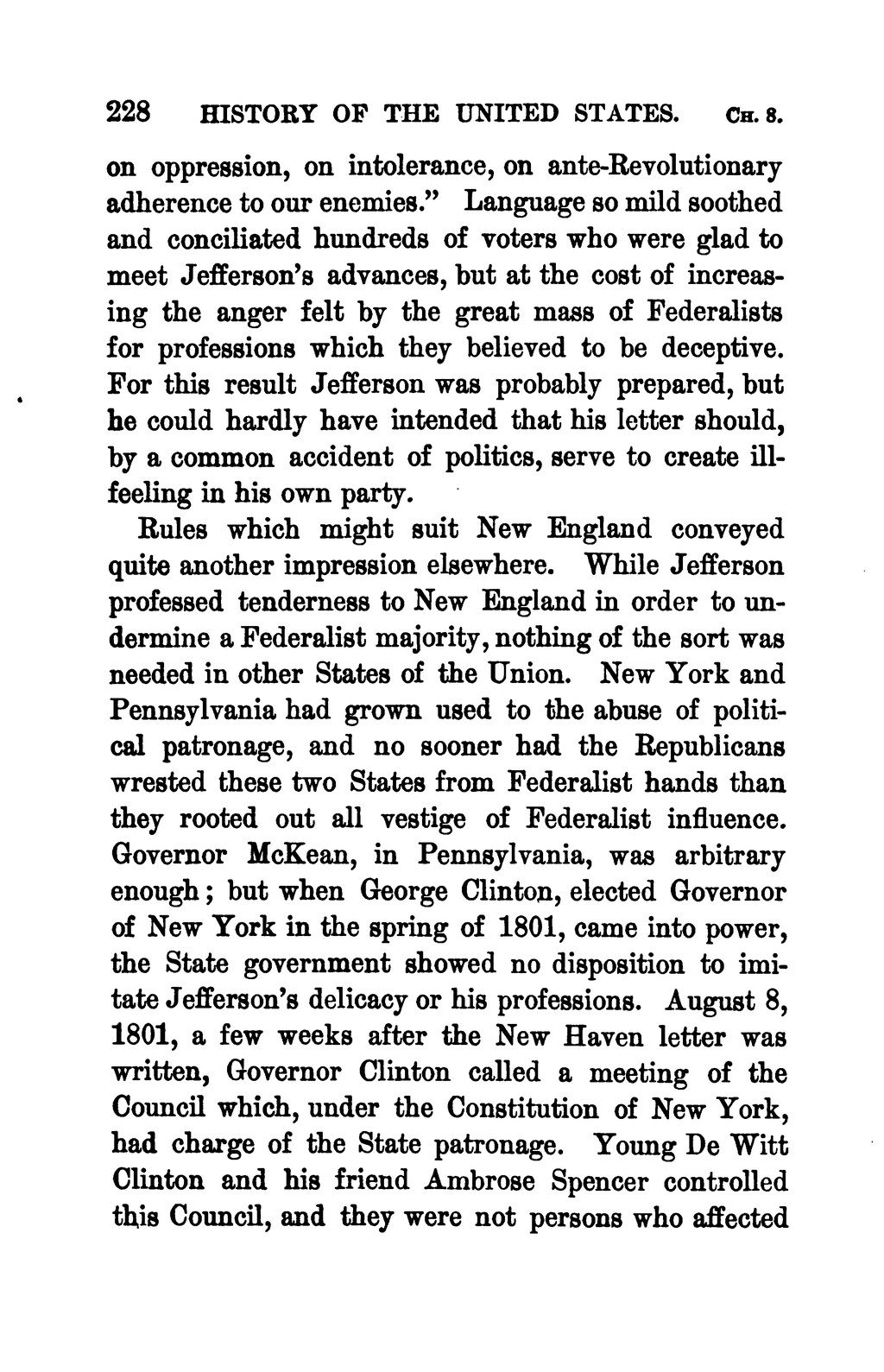on oppression, on intolerance, on ante-Revolutionary adherence to our enemies." Language so mild soothed and conciliated hundreds of voters who were glad to meet Jefferson's advances, but at the cost of increasing the anger felt by the great mass of Federalists for professions which they believed to be deceptive. For this result Jefferson was probably prepared, but he could hardly have intended that his letter should, by a common accident of politics, serve to create ill-feeling in his own party.
Rules which might suit New England conveyed quite another impression elsewhere. While Jefferson professed tenderness to New England in order to undermine a Federalist majority, nothing of the sort was needed in other States of the Union. New York and Pennsylvania had grown used to the abuse of political patronage, and no sooner had the Republicans wrested these two States from Federalist hands than they rooted out all vestige of Federalist influence. Governor McKean, in Pennsylvania, was arbitrary enough; but when George Clinton, elected Governor of New York in the spring of 1801, came into power, the State government showed no disposition to imitate Jefferson's delicacy or his professions. August 8, 1801, a few weeks after the New Haven letter was written, Governor Clinton called a meeting of the Council which, under the Constitution of New York, had charge of the State patronage. Young De Witt Clinton and his friend Ambrose Spencer controlled this Council, and they were not persons who affected
